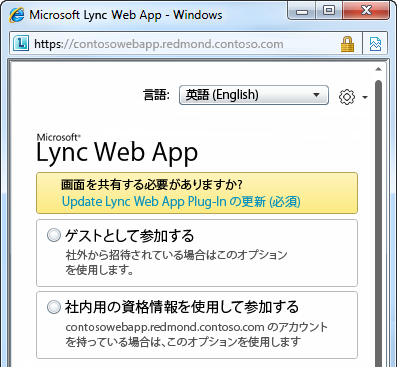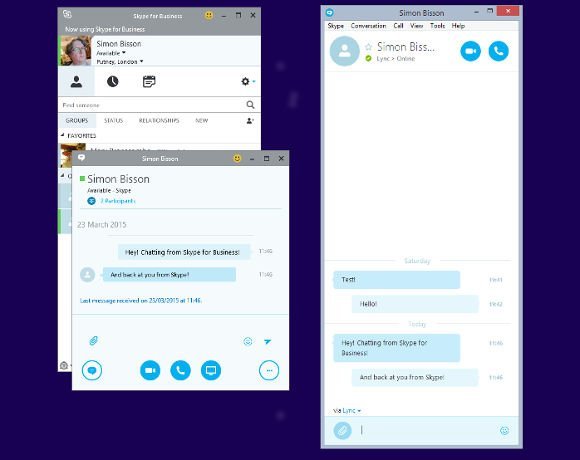

I wouldn't worry about scale, unless you have a unique scenario, in which case contact Microsoft directly, I'm sure they would be happy to work with you on this. Obviously, with any large-scale deployment, scale is something you have to think about, but it's something that Lync has been designed to support (along with DR, failover etc) Internally, IM-based applications can be used, but these can also be access from publicly-facing websites.
Microsoft lync download web full#
It's billed as a full PBX-replacement system, which includes VoiceXML for IVR-style applications. Swisscom replaced 94 PBX units worldwide. South Ayrshire Council support 110K users.

There are lots of large-scale case studies you can reference, from the Lync Case Studies page. Public-facing hosting provider for VoiceXML and IM-based applications,Īnd scale to meet the needs of a large public-facing site with I'd like to propose another answer, 2 years on, now that Lync 2010 is fully released and being used.Ĭan Microsoft Lync Server 2010 serve as both an internal and I guess what I need to know is this: Can Microsoft Lync Server 2010 serve as both an internal and public-facing hosting provider for VoiceXML and IM-based applications, and scale to meet the needs of a large public-facing site with thousands or even millions of users?Īm I totally misunderstanding what Lync can/cannot, and should/should not do? However, what I am still unclear on is this: Is Microsoft Lync Server 2010 a good fit for public-facing Web sites and applications? Or is really intended for use primarily within the corporate firewall, for mostly internal applications? This is all very exciting because I would like to start building rich voice and instant messaging application with tight integration to the Microsoft technology stack and with fewer third-party dependencies (e.g. NET managed API enabling integration and extension of Lync experiences.

In coordination with this release, also available for download is the Microsoft Unified Communications Managed API 3.0 SDK (UCMA 3.0). The release candidate for Microsoft Lync Server 2010 (formerly known as Office Communications Server and/or Speech Server) was just made available for download.


 0 kommentar(er)
0 kommentar(er)
